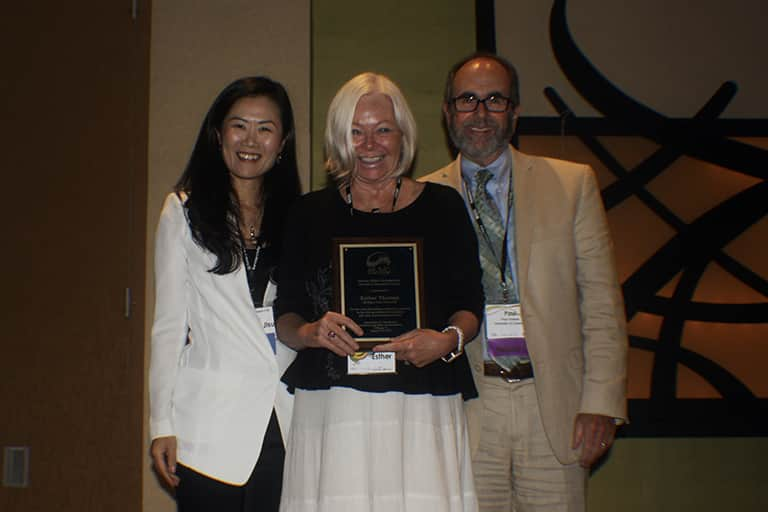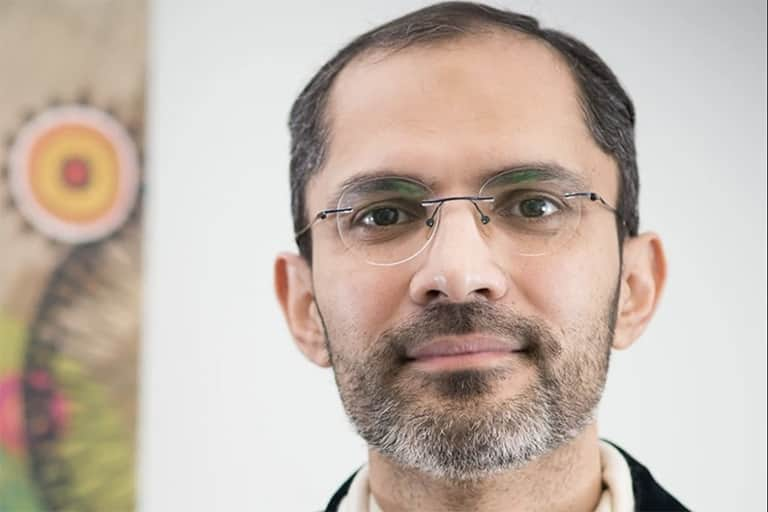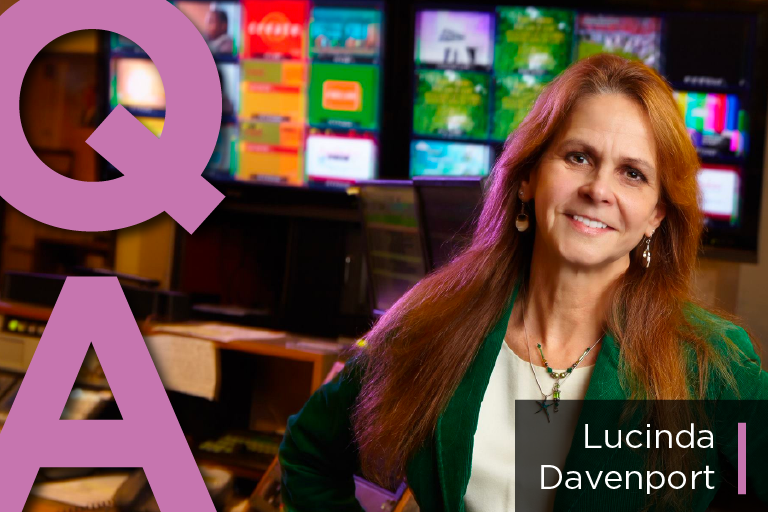Lucinda D. Davenport Ph.D.

Bio
Dr. Lucinda D. Davenport has been recognized for her leadership, teaching and mentoring, scholarship, and community engagement and service at Michigan State University and nationally. She was also inducted into the state of Michigan Journalism Hall of Fame.
She stepped aside as Director of the School of Journalism after a successful 10 years. Before that, she was the Associate Dean for Graduate Studies and Research for the College of Communication Arts and Sciences (overseeing 11 programs). She is also a former director of the college's Information & Media Ph.D. program and Journalism's Graduate Program.
Dr. Davenport's media research aims to have significance and impact that benefit individuals and society in local to international communities. Her focus in journalism studies includes innovative media technologies, history, journalism education, media and democracy, public relations, ethics, and women and media, among others. She is published in books and refereed research journals, including Journalism and Mass Communication Quarterly, Journalism Studies, the international TMG Journal for Media History, International Journal of Strategic Communications, Asian Journal of Communication, International Communication Gazette, LBS Journal of Management & Research, Newspaper Research Journal, Web Journal of Mass Communication Research, The Journal of Media Economics, Journalism & Mass Communication Educator, Journal of Communication Inquiry, Journal of Mass Media Ethics, Communication Teacher, and Visual Communication Quarterly.
She co-authors two international textbooks in reporting and mass communication that are at the top of their markets and have been translated in different languages: Writing and Reporting for the Media, 13th ed. (2023). New York: Oxford University Press (adopted by about 350 journalism programs, including Harvard, Stanford, and Columbia universities) and Media Now: Understanding Media, Culture, and Technology, 11th ed. (2024). Boston, Mass: Cengage Learning. She co-authored a third book, The Media in your Life: An Introduction to Mass Communication, and several websites.
Before becoming Director of the School of Journalism, Dr. Davenport advised more M.A. and PhD. students than any other faculty in the college. She enjoys advising undergrads, as well. She has taught many skills and seminars journalism and media courses, ranging from doctoral courses in qualitative research to graduate classes in mass media history to undergraduate classes in journalism writing and public relations. She taught in-person courses in Brazil, Great Britain and Saudi Arabia, for example, and led the successful initiative to teach remote learning modules in journalism on Coursera’s international platform, attracting more than 600,000 students (https://www.coursera.org/specializations/become-a-journalist).
Dr. Davenport has been a digital media pioneer and innovator. Her master's thesis and doctoral dissertation were firsts in the country on computerized information services and online news. She created and programmed the first comprehensive commercial interactive software program for journalism education. She was the first to implement augmented content into a journalism textbook. She was one of the first in the nation to teach seminar and skills courses on digital news, offer professional workshops on data journalism and lead courses online. She was the first digital editor for the local news outlet, the Lansing State Journal. At that time, well-known journalist and educator Fred Fedler wrote that Dr. Davenport was “the nation’s No. 1 expert in the use of computers in journalism education.” She continues to work in this area.
Her teaching, research, grants and service/outreach scholarship are intertwined for a focus on improving media for individuals and society in local to international communities. Recent work, such as collaborating on developing a Fair Chance Diversity Sourcing Tool, is now used by professional journalists and news organizations to check in real time the diversity and inclusion of sources in individual stories and across the newsroom (https://www.fairchancereporting.com) and has been recognized with teaching and service awards and research grants. Another award-winning example includes initiating MSU JRN administration and fund raising for the MSU Detroit High School Journalism program (12 participating schools-http://www.detroitdialogue.com). And one of her grants successfully preserved, digitized and made public some of the only known original pages of the Chicago Tribune showing historic innovations in color and printing (15,000 images on 5,500 pages).
She has chaired and participated on many school, college and university committees, including 11 committees in the prior academic year alone. She is on the Board of Directors for the student-run IMPACT 89FM Radio, was former President of the Board of Directors for MSU's independent student newspaper, The State News, and was on Faculty Senate, for instance.
Dr. Davenport has worked professionally in different areas of the journalism and communication industries, from being a reporter and photographer in newspapers, a news director and announcer in public radio and commercial television, a public relations practitioner in national retailing and a forum administrator in early online media, among other positions. She is often asked to review national journalism programs, candidates for promotion in academia, and research manuscripts.
She earned her Ph.D. in journalism and mass communication from Ohio University, an M.A. in mass communication from the University of Iowa, and a B.A. in journalism from Baylor University.
Dr. Davenport was the third female hired into the historic School of Journalism's tenure-stream system. She was the only tenure-stream female for many years, beginning with her first year, and has mentored many colleagues. She is a strong advocate for equality of women and DEI in journalism, as evidenced in her activities and research.
Research and Teaching
Thematic Research Areas
Journalism Studies
Health & Risk, Environment & Science Communication
Political Communication and Civic Engagement
Research Centers and Labs
Related Work

J-School Wins at the AEJMC 2017 Conference
Read more

Studying the Effects of Nostalgia on Health Communication
Read more

Spartans Combat Bias in Reporting with 'Sourcing for Diversity Project'
Read more

Michigan Journalism Hall of Fame to induct six members
Read more
